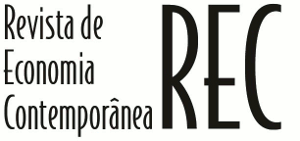This paper tests an empirical implication of the Barro and Gordon model for the Brazilian Economy after the Real Plan aiming at finding some empirical evidence that could indicate if the Brazilian Monetary Policy, from July 1994 to December 2006, could be most plausibly described as discretionary or committed to rules. The test uses alternative measures of economic activity and inflation. The empirical evidence does not support discretion as the way monetary policy was conducted in the period studied. This conclusion holds for the fixed exchange rate regime and for the inflation target regime as well. In sum, the joint existence of a rule-based monetary policy and economic stabilization is the most plausible scenario for the analyzed sample, under the Barro and Gordon model.
vector autoregression; monetary policy; stabilization


























